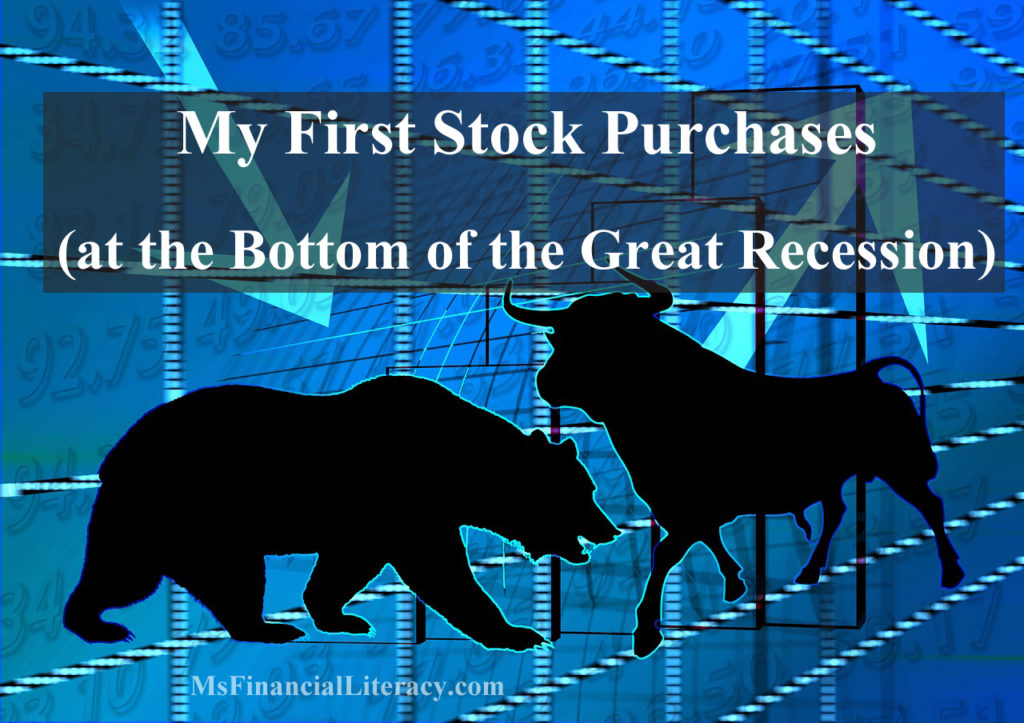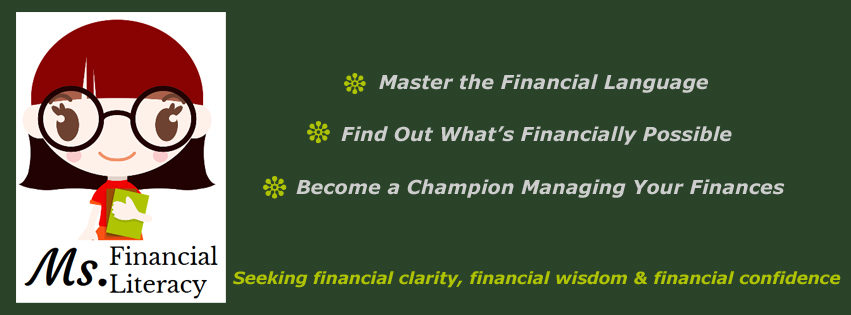For those of you who are familiar with the stock market, do you remember the time when you first got introduced to it? What were some of your early associations with the stock market? At the time, were you anxious to get into it? Was the market something you swore to avoid?

My Dad’s Warning Message (to me) on the Stock Market
My first impression of the stock market occurred right at the start of the Great Recession. One day, in November 2008, I was having dinner with my family. The news was on the television. I recall my dad telling my brother and I to never ever “gamble” in the stock market.
Yes, to him, participating in the stock market was a form of gamble, not a form of investment. This was coming from someone who had very limited exposure to the stock market other than what he saw and heard on television. However, not knowing any more of the stock market than my dad did at the time, I took his words to heart. The stock market was something to avoid.
In the following weeks, the messages and images that kept showing up on mass media (covering the beginning of the Great Recession) just confirmed my dad’s belief of the stock market. Seeing and hearing stories of people jumping off buildings, losing their marriages, going into jail, becoming depressed and/or losing their children’s college savings and/or their own retirement savings—all due to steep drops in the stock market—just “proved” the evil side of “gambling”. Yes, the stock market was evil, I concluded.
The Man I was About to Meet and What He Taught Me About the Stock Market
Little did I know then, I was about to meet my now husband. And he was “gambling” in the stock market, I quickly learned. At first, I was feeling very conflicted. I didn’t want to date a gambler, yet, there was nothing about him that resembled a gambler. This man was frugal, practical, smart and cautious. He had an academic background in computer sciences and economics. He was also into statistics and strategy games. So many parts of his personality did not fit the profile of a gambler. Was there something he knew about the stock market that I wasn’t aware of?
For weeks, I threw lots of questions at my now husband. According to him, there are real risks participating in the stock market. However, a smart and prudent investor (as he called himself) can do a lot to protect his/her savings and minimize potential risks inherent in the stock market. He then went on to explain the different types of asset classes, as well as the pros and cons associated with each. He also introduced me to dividend yields and interest payments. Furthermore, he informed me how the stock market works, what it means to invest in a company or fund and why we need to view investing in the stock market as a long-term investment.
While listening to him talking about the stock market, little by little I became more and more intrigued. As I learned more about how the market works and how it could potentially help me achieve some of my biggest financial goals, I found myself being more and more open to the idea of becoming an investor myself.
My First Stock Purchases
Before I knew it, I opened a Roth IRA account and made my 2008 contribution sometime before April 2009. A few days later, I also fully funded my 2009 Roth contribution. That $10,000 ($5,000 each year) was no small amount to me; it was almost half of my net worth at the time.
I don’t recall exactly what I was feeling then. There was a lot of fear across the globe. Many were avoiding the stock market during such economic downturns. And those who were already in, were busy selling off their holdings, trying to save whatever little was left in their accounts. But, there I was, putting half of my net worth into the stock market during a time when many considered “the collapse of the financial world”.
I am definitely not a risky person. I started working part-time when I was 13 and it was a long road to having saved $20,000. You bet I was guarding my money like a hen guarding her chicks. So, what explained my behavior back then?
My now husband is the answer. In a matter of few months, he shared with me what it would take to become a prudent investor (his teaching included both knowledge and the exercise of certain human behaviors). As a result, I went into the stock market with an objective long-term view. I had good ideas of what companies or funds I wanted my money to be invested in. Over time, I also acquired an investor’s mindset.
Rather than being distracted by the noises of the mass media, my now husband helped me see and understand the stock market for what it was and as it was (I can go on and on listing all the things he has taught me about the stock market. You can read some of that here). In additional to his teaching, I also spent hours perusing online personal finance and investing articles. I read many books on investing, including some of my husband’s favorites. By the time I put in my first purchase order back in April 2009, I already had acquired a lot of knowledge of investing and how to be a patient and smart investor. I was certainly nervous, but I felt better knowing that I did my best having done the homework prior.
Eight Years of being an Investor
It has been 8 years since I made my first stock purchases. Over this period of time, I’ve purchased many more shares and sold very few (some would call me a ‘buy & hold’ investor). I certainly have had some misses along the way. Losing even just a few dollars was very painful in the beginning. With each transaction, I learned a little more about my investment choices, the market and my investor personality. There’s no guarantee that I won’t make similar mistakes again. I will continue to do the best I can and remind myself that I’ve come a long way.
The stock market doesn’t guarantee positive returns on your money (otherwise, everyone would be doing this and everyone would be getting wealthy). This is true for any other forms of investments. If somebody tells you otherwise, this is a big red alert. Your success (or failure) in the stock market depends on many factors; some of these factors you cannot control and some you can. And doing your due diligence on stock investing, the market (the present and past cycles) and potential companies or funds you are interested in—is one of the best ways you can make your money work harder for you.
Whatever associations you currently have about the stock market, I encourage you to objectively learn about it. I can’t promise that you’ll do better (or worse) than me. Take the time to learn. Don’t just take anyone’s words at face value. My husband certainly helped me jump start my investing career. At the same time, I also took matters into my own hands and studied a lot (I wrote about how I did this here, here and here). I encourage you to do something similar. And if at the other end you decided the stock market is not for you, that would be fine, too. At least, you know why. But if you do want to take a leap of faith on the stock market after having done your due diligence, I can’t wait to hear about your new adventure!
The stock market can be one of your best vehicles to help you reach your financial goals. Do you have what it takes to be a prudent investor? How do I define a prudent investor? Watch out for this post in the upcoming week.
Don’t want to miss a new post? I encourage you to sign up for my free weekly newsletter that goes out every Monday to receive updates on new posts.
